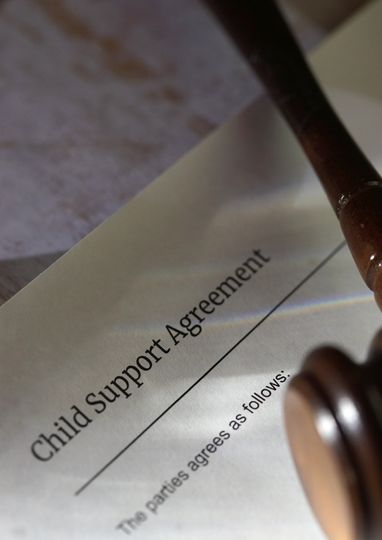Irvine Child Support Lawyer

Irvine Child Support Attorney
Raising a child is challenging. Whether you are married to your child’s other parent, divorced, or no longer in touch, it can be difficult to navigate the landscape of childrearing. However, when parents do not live together, the parenting process can be even more difficult.
Child support determination is a large part of raising a child if you and your child’s other parent are not married. If you are going through a divorce, a child support order may be part of your case. It is important to know the basics about child support so that you can properly navigate your case.
Although child support negotiations may be intimidating, with the help of an Irvine family law attorney, you can develop an arrangement that works for you, your spouse, and your children.

Quinn & Dworakowski, LLP: Your Orange County Child Support Attorneys
Child support and child custody are two of the most important parts of your divorce negotiations in Irvine, CA. These determinations will have far-reaching consequences for your family, so it is important to have qualified attorneys working with you throughout the process. Our team has been working as Irvine family law attorneys for many years. We understand the importance of this process as well as how to achieve the best agreement terms for your family.
We work diligently in family law matters because we know that a swift, reasonable resolution is the aim of all parties involved. When you work with us, you receive ongoing support for your child support negotiations as well as fierce advocates in the courtroom. You can trust our team to fight for your family’s best interests during your child support case.
No other attorneys in the area have the level of experience and passion that we do at Quinn & Dworakowski, LLP.
What Is Child Support?
When two people have a child, the law requires that they both fairly contribute to the child’s upbringing. This contribution can be in the form of time, resources, or both. Child support payments can be made from one of a child’s parents to the other to make the contribution more balanced if it is not already.
For example, if Parent A has full custody of their child, Parent B is not spending an equal amount of time contributing to the child’s upbringing. Parent B can make child support payments to Parent A to make up for the lack of custody and make their contribution fairer.
Child support payments usually happen monthly through a government agency or online portal. The payment schedule and method will be included in your child support calculation and agreement.
Why Do I Need an Irvine Child Support Lawyer?
Child support is a vital aspect of our legal system, as it ensures that parents take equal responsibility for their children. Without this system, many parents would have to shoulder the financial and emotional burden of raising a child alone.
Because the law is so strict about these agreements, it is important to have an attorney to help you navigate your case. We can help to ensure that any child support calculations, suggestions, or agreements are fair and equitable for you. Although your child’s other parent may try to argue for you to pay more or receive less, we will make sure that any legal decisions are in your best interest and the best interest of your child.
Child support agreements need to be fair to the parents as well as beneficial to the child. We can make sure that the court considers all aspects of your financial situation when creating a child support agreement. You should be fairly represented in this discussion, and the only way to ensure that is by hiring an Irvine child support lawyer.
Child Support and Imbalanced Income
Many child support payment agreements occur because custody of the child is imbalanced. For instance, one parent has custody most of the time while the other has partial custody a minority of the time. However, it is possible for child support payments to be required in shared custody situations.
When the court determines fair child support payments, they assess each parent’s income and the percentage that each parent spends on raising their child. For the responsibility to be equal, each parent should be spending similar percentages of their income on childcare. This can include:
- Housing
- Food
- Clothing
- Medical care
- Schooling
- Recreation
When both parents have equal custody, the court assumes that each parent spends about the same amount on their child. However, this does not mean that the percentage of the parents’ income that they spend on the child is equal.
For example, suppose that the court determines that you and your child’s other parent each spend approximately $10,000 on your child every year. If you make $100,000 per year, childcare costs are about 10% of your income. However, if your child’s other parent makes $50,000 per year, the $10,000 child cost equates to 20% of their income. This is not fair or equitable. In this scenario, the court may ask you to pay child support to your spouse so that the percentages of your incomes that you spend on the child are more equal.
If you share custody with your child’s other parent, it is important to know that you may be eligible for monthly child support payments. If the other parent makes a much higher income than you do but you share custody, you should speak with an attorney right away to ensure that you are receiving all the support that you deserve.

Child Support Modifications
It is entirely possible for circumstances to change after your child support agreement has been in place for a while. Perhaps your child’s needs have changed, your custody schedule has changed, you have a new job, or your child’s other parent received a raise. No matter what the case may be, it is important to understand that you are allowed to update your child support agreement. This can be done through a process called modification.
Modifications give you the opportunity to bring your situation to court to show the judge how circumstances have changed. The judge will assess these changes and determine if an adjustment to your child support agreement is appropriate. If it is, they will draft an updated agreement for you to sign, and the new terms will go into effect.
It is important to go through the court system when you make any changes to your child support agreement. When you go through the court, your changes will be legally binding. If you make agreements outside of court on your own, the court cannot enforce them. This means you could be penalized, underpaid, or otherwise left without the support that you need.
For example, if your child’s other parent begins to make more money and agrees to pay you 10% more in child support, the court cannot enforce this unless you go through the court to make the change. Therefore, if your child’s other parent continues to pay you the old amount, you have no grounds to require them to pay 10% more.
Child Support Case FAQs
Q: Can Parents Agree to No Child Support in California?
A: No. Child support is the right of the child and therefore cannot be taken away by the parents. Children have the constitutional right to care, and child support is a part of this in situations where parents do not live together. Waiving child support, even if both parents agree, infringes on the child’s right to care and is therefore unconstitutional. In situations where child support is used in place of or in tandem with child custody, the payments cannot be waived.
Q: How Does Child Support Work in California?
A: A judge will review your situation during child support negotiations. If you are getting divorced, child support will be part of the process. Once an amount has been determined, child support payments must be made through the state. This helps the courts track and enforce these payments. If payments are late or missing, the state can usually take them out of the payer’s paycheck.
Q: How Much Is Child Support in California?
A: Child support amounts vary widely. They depend upon your income, your child’s other parent’s income, your custody schedule, and the child’s needs. Child support payment amounts are limited to a maximum of 25% of a non-custodial parent’s monthly income. However, even this limit can vary depending on the situation.
Q: How Do I Get Child Support in California?
A: To receive child support in California, you need to go through the court system. With the help of an attorney, you can show the court why you need child support and why your child’s other parent should be paying it. If you are successful, the court will grant you child support, which you will receive monthly through the state.
Contact Quinn & Dworakowski, LLP
If you are going through child support negotiations, divorce, or any other family law matter, our team is here to support you. With our vast experience, we are a vital resource for you during your legal process.
For more information, contact Quinn & Dworakowski, LLP, online.


